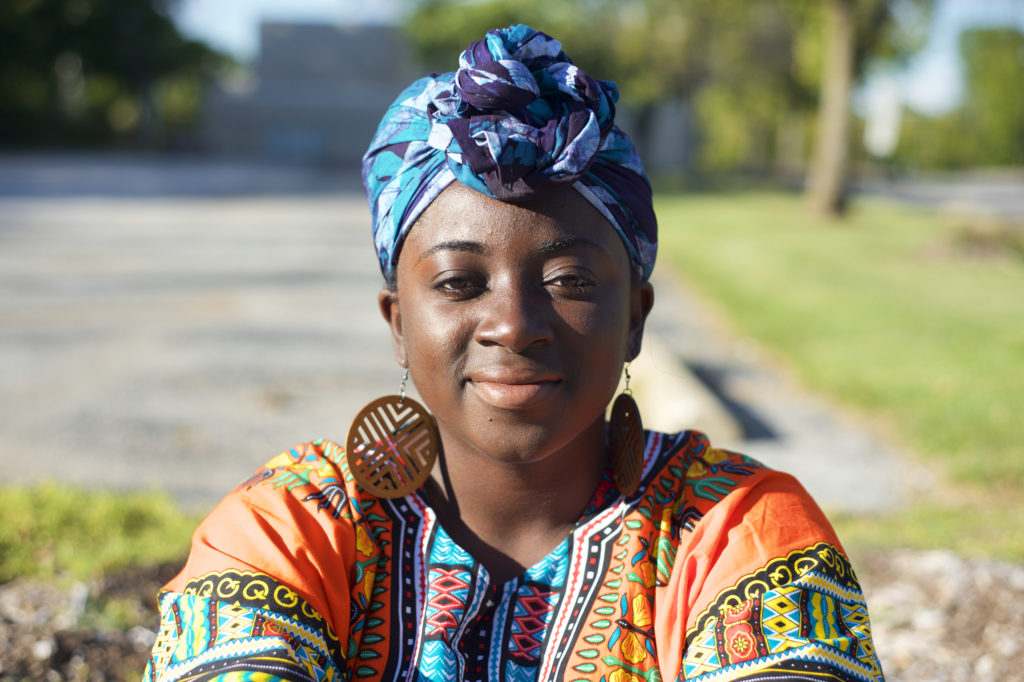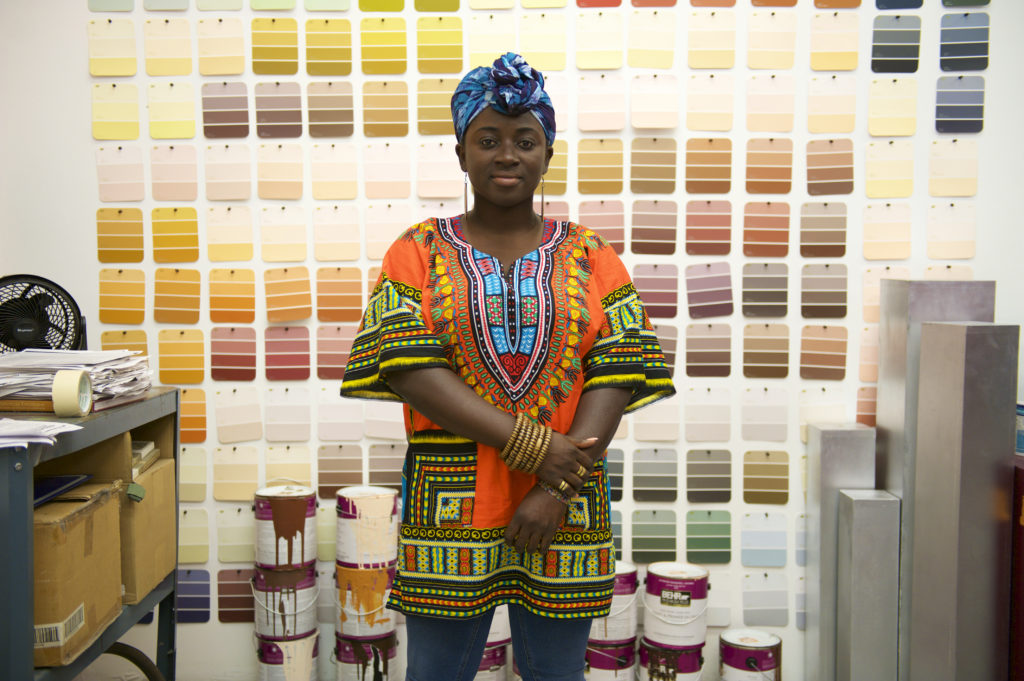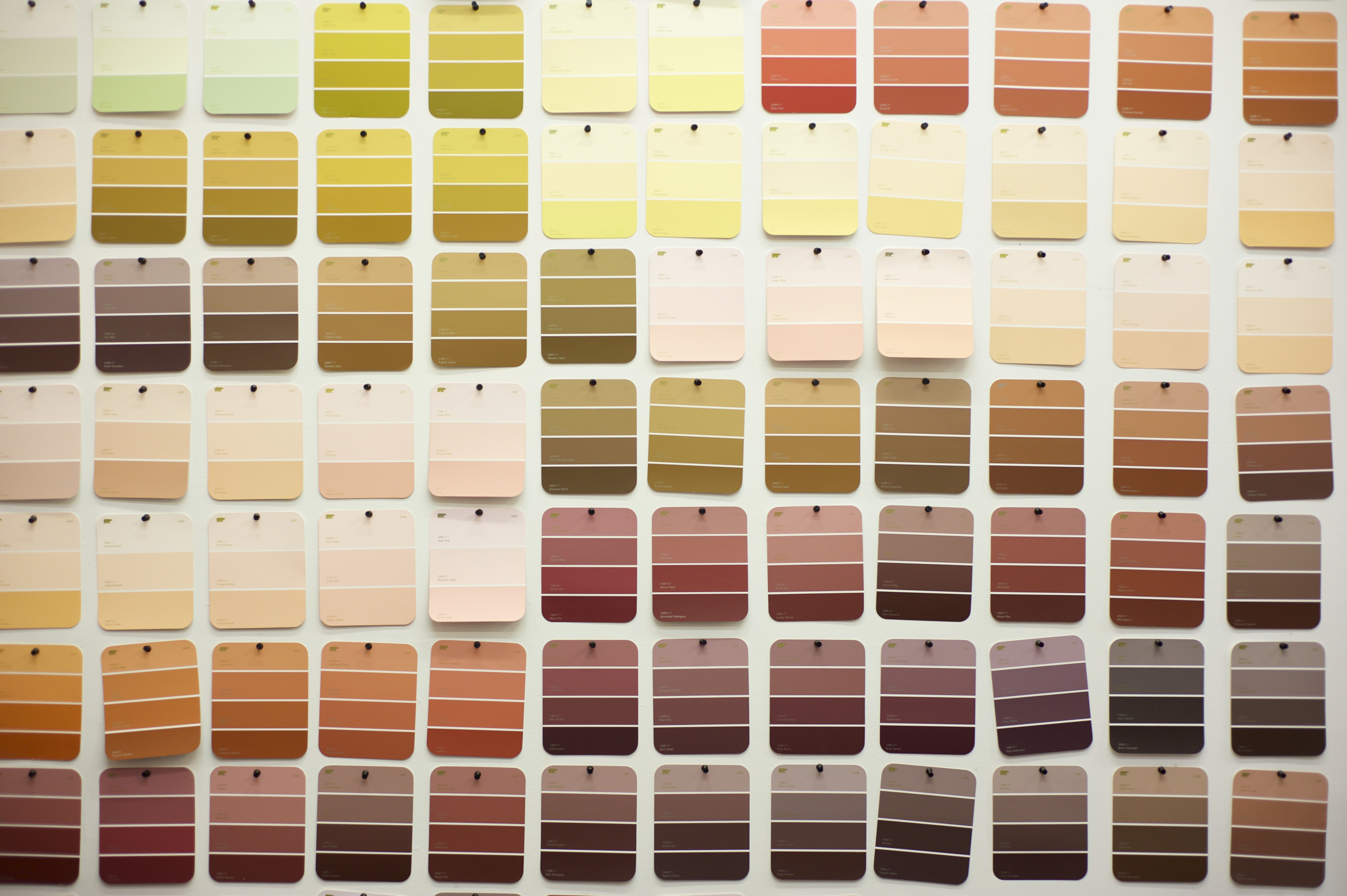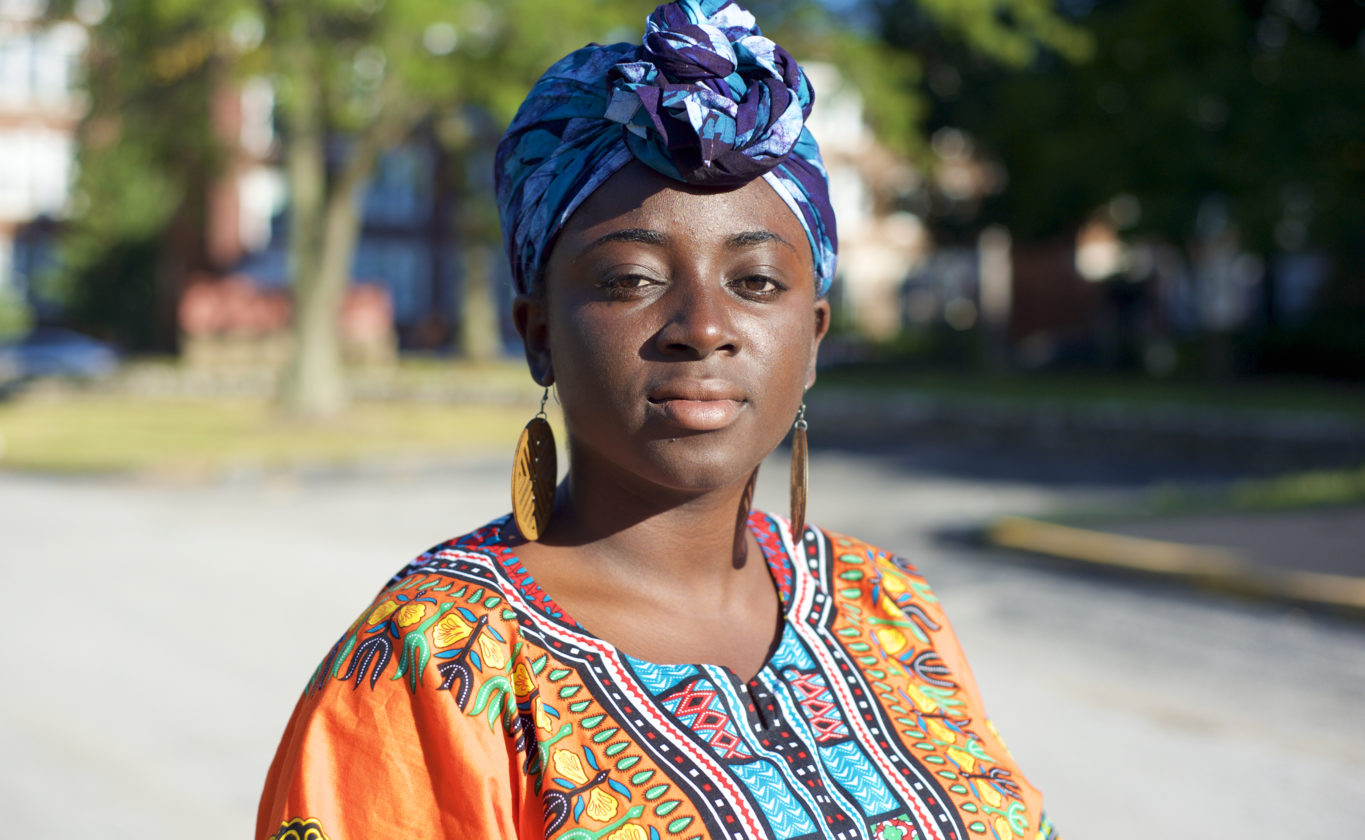
Yvonne Osei, Photos by Lindy Drew
I went to Home Depot and asked the employee in the painting department to give me a color of my skin. She said, “A color of your skin? I’m sorry. We don’t do that here.” I said, “No, no. You don’t understand. I’m doing research. It’s not meant to be a joke.” So, she called her supervisor and I told the gentleman, “I just want to generate a color of my skin.” He said quite hesitantly, “No problem. We’ll generate that skin color.” He put my hand in the spectrometer and generated one. I said, “How about my elbow?” and we generated a different color. At the end of the day, we got seven skin colors that kind of relate to parts of me. I was really fascinated by the nomenclature of their color swatches. Who’s naming them? Why is this “English Coffee” and that “Mexican Chile Pepper?” How are these names being made up? I’m really fascinated by color, and not necessarily color in terms of race, but color as pigment and how that often tricks our eyes and informs the way we perceive things.

In one of my installations called Infinity, I would pour different colors of paint on people of different backgrounds and tell them to mix it until they got their true “Blackness” — as if that were attainable. I remember when I was a child in second grade and my teacher would say, “Yvonne, you’re painting too much. You’ll turn the colorful painting into a black mess.” The idea of all colors giving you some sort of grey, or black, or darker hue is what I was interested in. Through Infinity, someone who’s Vietnamese looks like someone who’s South American, and someone who’s from South America resembles someone from South Africa. It was almost like I was creating my own ethnic group of people with various nationalities. As I confront my identity as an African female artist, one of the things I also want people to understand is that identity is not just in these blocks. “Oh, I’m Black, I’m African, I’m female, or I’m Ghanaian.” No, it’s a mixture of things. You cannot separate being Black from being female or being an immigrant. All these components enrich who you are as an individual and we should be reminded as such. It’s really not as simple as being Black or being White.


